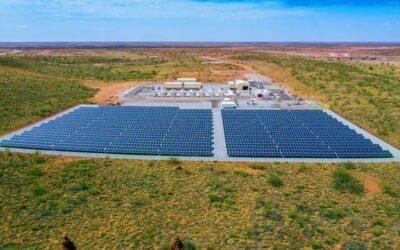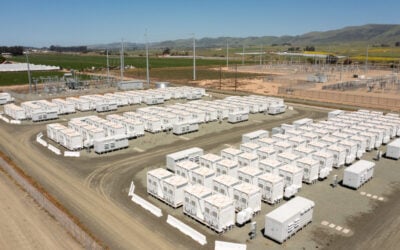21 October 2015: Energy storage manufacturer CODA Energy has hired clean energy veteran Marc Roper as its first chief commercial officer. Roper has previously worked at SCHOTT Solar and the Colorado Governor’s energy office among others. He will take responsibility for sales, marketing, business development and regulatory affairs.
“With the increasing use of renewable resources like wind and solar, growing demand on aging utility distribution systems, and the trend toward a greater customer role in maintaining the health and reliability of the electric utility grid, it’s an exciting time to be in the energy storage space,” said Roper.
Enjoy 12 months of exclusive analysis
- Regular insight and analysis of the industry’s biggest developments
- In-depth interviews with the industry’s leading figures
- Annual digital subscription to the PV Tech Power journal
- Discounts on Solar Media’s portfolio of events, in-person and virtual
This story by John Parnell.
ABB's fast-charging stations are intensive on the grid as they take just 30 minutes to fully charge a vehicle. Credit: ABB
20 October 2015: Microsoft and Swiss-headquartered power and automation specialist ABB have launched a new platform, which tracks data during fast-charging of electric vehicles.
Under the partnership, ABB’s internet-connected EV charging stations will be combined with Microsoft’s Azure cloud-based service to provide data on usage and demand as well as predictive analytics.
The progress of the electric vehicle sector is important for the storage industry. As Dean Frankel of Lux Research, told PV Tech storage: “There is a very strong relationship between electric vehicles and stationary storage by way of industry scale-up and in turn cost reduction. The largest industry growth driver for batteries will come from electric vehicles which will improve the price-performance of Li-ion cells and in turn the competitiveness of energy storage systems.”
Microsoft has previously partnered with ABB, also using the Azure cloud, to create a software portfolio to assist with customers' asset and workforce management.
The latest collaboration will provide improved data management for ABB's EV fast-charging stations, which typically take around 30 minutes to fully charge a car. Microsoft did not provide much detail on the new innovation, but the cloud software is likely to improve the charging stations’ interaction with the electric grid.
Pekka Tiitinen, president of ABB’s discrete automation and motion division, said: “Platform performance and stability are critical differentiators for the successful operation of a modern, data-dependent EV charging station.”
Inventor James Dyson had already made a $15 million investment in Sakti3. Credit: Eva Rinaldi
20 October 2015: Vacuum cleaner company Dyson has bought solid-state battery technology company Sakti3 for an estimated US$90 million, it has been widely reported.
Inventor and founder James Dyson had already made a $15 million investment in Sakti3 in March this year.
Dyson now plans to use the startup’s technology in batteries for its cordless vacuums, develop new products and build a battery manufacturing plant.
Earlier this year Sakti3 was aiming to commercialise solid-state lithium-ion battery technology in various sectors, claiming its production processes can speed up the scaled manufacture of batteries. It was focusing on using its batteries for electric vehicles, but had been reported to be looking at stationary storage applications also.
News outlet Quartz, which first reported the latest deal, said that solid-state batteries do not include liquid electrolyte, an ingredient in lithium-ion batteries that can cause fires. Instead, the liquid is replaced by a solid, such as a polymer.
If Dyson was to move into the electric vehicle market, it could result in direct competition with other battery producers such as Tesla, Panasonic and LG Chem.






